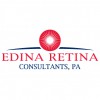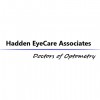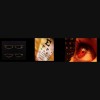
We specialize in diseases affecting the retina and vitreous such as macular degeneration, retinal detachments, and diabetic eye disease. Retina doctors are fully trained ophthalmologists who have chosen to do additional formal training in diseases affecting the back of the eye.
This added expertise makes retina physicians able to expertly manage many diseases behind the lens such as: an eye that has filled up with blood, a retina that has separated from the back of the eye, aging changes of the retina, many eye injuries, and some tumors affecting the eye.
This added expertise makes retina physicians able to expertly manage many diseases behind the lens such as: an eye that has filled up with blood, a retina that has separated from the back of the eye, aging changes of the retina, many eye injuries, and some tumors affecting the eye.
Services
About Dr. Johnston
Report
Dr. Johnston received his medical degree in 1992 at the University of Toronto. He then went on to do an internship in internal medicine followed by a residency in Ophthalmology at the University of Toronto. After completing his residency, he accepted a 2-year fellowship in Diseases and Surgery of the Retina and Vitreous at the Doheny Eye Institute, University of Southern California.
Retina Detachments
Report
The retina is a thin membrane (like wet tissue paper) that lines the back of the eye. Its purpose is to turn the light into a picture that can be sent to the brain through the optic nerve. It must be attached to the back of the eye to function properly. In front of the retina sits the vitreous humour.
Macular Degeneration
Report
The retina is a thin membrane (like wet tissue paper) that lines the back of the eye. Its purpose is to turn the light into a picture that can be sent to the brain through the optic nerve. The retina is divided into 2 parts - a central part, called the macula, and an outside or peripheral part. The central part is the most important as we look straight ahead to see most things.
Post Operative Instructions
Report
You should not eat or drink anything including water, after midnight the night before surgery. If you are on heart or blood pressure medications, please take them as usual before the surgery with the tiniest sip of water possible. You will need someone to bring you home from the hospital, and you should not stay alone that night.
Faq
Report
Gas or oil bubbles are used in retina surgery to either close holes or help keep the retina attached. The gas bubbles rises up and press against the highest position of the eye. Depending on the area of damage to the retina, your doctor may ask you to position on your left side, right side, face down, or upright, or some combination of these positions.
Reviews

Be the first to review Edina Retina Consultants.
Write a Review



